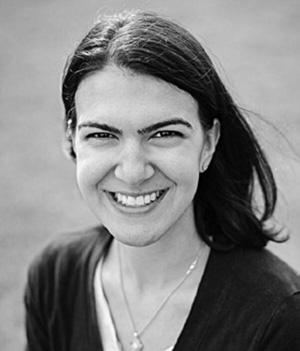
It is difficult to find words to respond to the horrific fate that befell 19-year-old Ori Ansbacher, murdered while she took a walk in the Jerusalem woods. In recent years we have sadly grown accustomed to such tragedies in Israel. Each martyred victim seems to have been more impossibly sweet than the last. Innocents who, as Agnon once put it, “the enemy was not worthy even to touch.” Yet, the details of this particular tragedy shocks even those ears that are inured to such news. Can I add anything to the cries of mourning that have been echoing across the Jewish world?
Yet, beyond the photos and the loved ones’ memories, Ori left us with a poem. This poem, one among many to be sure, has been publicized in Hebrew and is worth examining closely. Ori’s remarkable personality is laid open within: she offers us a lens into a deep truth that she understood at a young age and was able to crystallize into words.
The poet begins with a call to action, “asi,” so that “your world will be/A world of peace.” Considering the brutal circumstances of her murder, there is something impossibly tragic about this delicate call for peace. Indeed, this is not the externally imposed peace of the activists who seek to displace people like Ori and her family in order to appease an insatiable beast. It is a peace that starts within and emanates outward. Ori understands that the first step she must take to realize this world of peace is to look within and appreciate her own value, “the girl who was” and “the honey that was,” before life became more complicated and challenging. Change is a paradox. One must reach back and reacquire something that was there all along: the sweet core of honey found in an innocent young girl.
For Ori, and perhaps many of her peers and role models in the community of Tekoa and beyond, the process of finding internal wholeness precedes seeking perfection from the world around you. It’s the inverse of a certain kind of activism we see among young people in other corners of the world. A world of peace is something you must try to create for yourself before you can demand it from others. The poem offers affirmation, hopeful but not overblown, that it is possible to reclaim the best parts of ourselves. Something pure and sweet and nourishing with which we may have lost touch.
After Ori’s death, several of her friends and neighbors put her words to music, which they then shared with her family at the shiva (https://www.facebook.com/dov.lipman/videos/2274032076171053/). The words and music and voices meld into a beautiful song. And, of course, in this context the song takes on additional shades of meaning: “the girl who was,” “the honey that was extracted,” a “world of peace” are now invoked ironically with devastating effect. Although those who listen and sing continue to suffer and grieve, the mindset expressed by this song, the sensibility from which it emanates, is a gift. How many great people have we come to know, just in the last three years alone, through their murders by terrorists: Dafna Meir, Hallel Ariel, Miki Mark, Erez Orbach, Elchai Taharlev, Elad Salomon, Adiel Coleman, Rabbi Itamar Ben Gal, Rabbi Raziel Shevach, Kim Levinger, Ari Fuld, Yovel Mor Yosef. The list goes on much further and I do not mean to exclude anyone, only to highlight some names that made an impact on me in particular, perhaps because of similarities in background or mutual acquaintances, ensuring that their story would be made known to me. There is a tendency to idealize people after their passing. Yet, these were holy people, each in their own way, in life and in death. Their stories have also introduced us to the communities that produced them who now gather to mourn. Perhaps it is a geographic issue: many of Israel’s most idealistic citizens live in the areas most vulnerable to Arab attack. Or maybe it is testament to the strong characters of Jewish Israelis more broadly. The lives that were stolen belonged to some of the finest people one could encounter, cut down by depraved monsters motivated by hatred and enabled by a political apparatus that is fed too much by the “civilized” world. Yet, in response to that ugliness, we see, inexplicably, beauty. Teenagers singing softly at the shiva house, a campaign to bake and share cookies, Torah learning, internal reflection, creativity and, yes, some threats to, gasp, build more homes for families in their memory.
Two years ago, hundreds of thousands of women in pink hats gathered in major American cities to fulminate and demand a vague set of rights, most of which they already have. This past year, angry mobs descended on Paris, flinging firebombs and destroying property, over rising taxes and stagnant economic conditions. In Israel, innocent children are murdered in cold blood at shockingly regular intervals. There is very little chanting. There are very few demonstrations. Rather tears, poetry, memory and love. When I think about this it’s hard not to feel a bit angry myself. I wonder whether the situation would change with a little more righteous fury and collective indignation. Perhaps it would. But I also remind myself of Ori’s words, even more potent when considering these
challenges. The perfection we seek in ourselves has the power to emanate outward. Only by recognizing and embracing our own inner sweetness, the honey that is there and has always been, will we build the world of peace we so desperately need.
By Sarah Rindner
Sarah Rindner is a Teaneck resident and professor of English Literature at Lander College. This article is reprinted with permission from her Book of Books blog.













